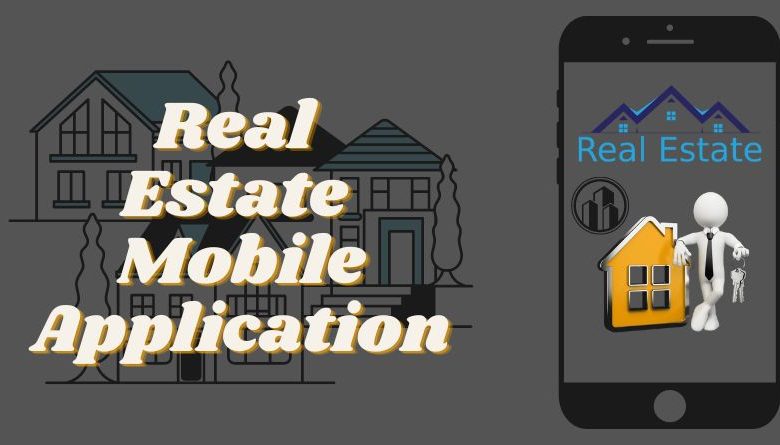Real Estate Apps: The Complete Guide to Features, Process, and Cost

The real estate industry is one of the most dynamic and constantly evolving industries in the world. In the past decade, the industry has undergone a significant transformation, and technology has played a vital role in this transformation. One of the ways technology has revolutionized the real estate industry is through the development of real estate apps. Real estate apps have become increasingly popular among property buyers, sellers, and investors. These apps provide a user-friendly platform for property searches, investment opportunities, and other real estate-related activities. In this article, we’ll take a closer look at real estate apps and the features, process, and cost involved in developing one.
What are Real Estate Apps?
Real estate apps are mobile applications designed for use in the real estate industry. These apps provide users with a wide range of features, including property listings, mortgage calculators, and property valuation tools. The primary goal of real estate apps is to provide users with a user-friendly platform for all their real estate needs. Real estate apps are available for both iOS and Android devices. They can be downloaded from app stores or directly from the developer’s website. Some of the most popular real estate apps in the market include Zillow, Redfin, Realtor.com, and Trulia.
-
Features of Real Estate Apps
Real estate application are designed with different features, depending on the app’s purpose and the target audience. However, some common features found in real estate apps include:
-
Property Listings:-
One of the primary features of real estate apps is property listings. These apps provide a platform where property buyers and sellers can list their properties. The app allows users to search for properties based on their preferences, such as location, price, and property type. Users can also filter their search results based on the number of bedrooms and bathrooms, square footage, and other essential features.
-
Mortgage Calculators:-
Real estate apps also provide mortgage calculators, which allow users to estimate their mortgage payments. Users can enter details such as the loan amount, interest rate, and loan term to get an estimate of their monthly payments.
-
Property Valuation Tools:-
Real estate apps also provide property valuation tools. These tools allow users to estimate the value of their properties. Users can enter details such as the property type, location, and square footage to get an estimate of the property’s value.
-
Virtual Tours:-
Virtual tours are another feature of real estate apps. These tours provide users with a virtual walk-through of the property. Users can view the property from different angles and get a feel of the property before scheduling an actual viewing.
-
Property Alerts:-
Real estate apps also provide property alerts. Users can set up alerts for new listings, price drops, or changes in property status. The app sends notifications to the user’s device when a property that matches their preferences becomes available.
-
Contact Forms:-
Real estate apps also provide contact forms. These forms allow users to get in touch with property agents or sellers directly from the app. Users can send messages or inquiries to the agent or seller and receive responses directly on the app.
-
Analytics and Reporting:-
Real estate apps also provide analytics and reporting tools. These tools allow property agents and sellers to track the performance of their listings. Users can view metrics such as the number of views, inquiries, and shares on their property listings.
-
User Profiles:-
Real estate apps development company make a apps to provide user profiles. Users can create profiles on the app, which stores their search preferences and other user-related data. This feature allows the app to provide personalized recommendations and search results based on the user’s preferences.
-
Map-Based Search:-
Real estate apps also provide map-based search. Users can search for properties using a map interface. This feature allows users to view properties based on their location and provides a visual representation of the property’s proximity to nearby amenities.
-
Reviews and Ratings:-
Real estate apps also provide a platform for users to review and rate properties. Users can share their experiences with the property and the app to help other users make informed decisions.
-
Real Estate App Development Process
The real estate app development process involves several stages, including:
-
Planning:-
The first stage of the development process involves planning. This stage involves defining the app’s purpose, target audience, and key features. It also involves analyzing the competition and identifying the app’s unique selling point.
-
Design:-
The design stage involves creating the app’s user interface and user experience. The design should be user-friendly, visually appealing, and consistent with the app’s branding.
-
Development:-
The development stage involves coding the app’s features and functionality. The app should be developed with a focus on scalability, security, and performance.
-
Testing:-
The testing stage involves testing the app’s functionality and user experience. This stage ensures that the app is bug-free, user-friendly, and consistent with the app’s design.
-
Deployment:-
The deployment stage involves launching the app on the app stores or the developer’s website. This stage involves submitting the app to the app store review process and ensuring that the app is compliant with the app store’s guidelines.
-
Maintenance:-
The maintenance stage involves updating the app’s features, fixing bugs, and addressing user feedback. This stage ensures that the app remains relevant and competitive in the market.
-
Cost of Real Estate App Development
The cost of real estate app development depends on several factors, including:
-
App Features:-
The cost of app development depends on the app’s features. Apps with complex features such as virtual tours, property valuation tools, and analytics and reporting tools are more expensive to develop than simple apps with basic features.
-
Platform:-
The cost of app development also depends on the platform. Developing an app for both iOS and Android is more expensive than developing an app for a single platform.
-
App Design:-
The cost of app development also depends on the app’s design. A custom-designed app is more expensive than an app developed using a pre-built template.
-
Development Team:-
The cost of app development also depends on the development team’s experience and expertise. Hiring a team of experienced developers is more expensive than hiring a team of novice developers.
-
Maintenance and Updates:-
The cost of app development also includes maintenance and updates. This cost includes fixing bugs, updating the app’s features, and addressing user feedback.
The cost of developing a real estate app ranges from $20,000 to $150,000. However, the cost can go higher depending on the app’s complexity and features.
Conclusion:-
Real estate apps have become an essential tool for property buyers, sellers, and investors. These apps provide a user-friendly platform for property searches, mortgage calculations, and property valuations. The development process of real estate apps involves several stages, including planning, design, development, testing, deployment, and maintenance. The cost of developing a real estate app depends on several factors, including the app’s features, platform, design, development team, and maintenance and updates. Real estate apps are an excellent investment for property agents, sellers, and investors looking to reach a wider audience and provide their clients with a better user experience. With the right features, design, and development team, a real estate app can be a game-changer for the real estate industry.




